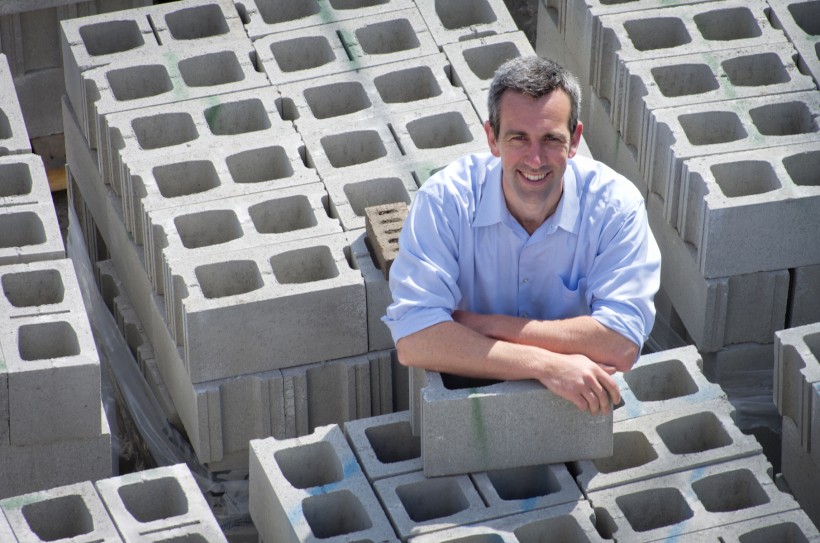CarbonCure Technologies will enter the ready-mixed concrete market due to its recent partnership with Vulcan Materials Company, the largest U.S. producer of construction aggregates and a major producer of construction materials.
Five to 10 percent of all carbon emissions come from the concrete industry. CarbonCure, based in Dartmouth, attempts to reduce this percentage by converting carbon dioxide into calcium carbonate, which permanently bonds the calcium in concrete with the carbon. The carbon dioxide now no longer exists, so it can’t escape into the atmosphere and pollute it.
Ready-mixed concrete is the concrete that isn’t manufactured by a machine in a factory, but produced in a truck, and then immediately poured fresh on site. Now that Vulcan, located in Virginia, near Washington, D.C., has partnered with CarbonCure for its ready-mixed concrete, America’s capital city is the first metropolitan market to have access to the company’s sustainable concrete. CarbonCure, which has been working on a ready-mixed product for several years, announced the partnership last month.
“CarbonCure is the concrete industry’s gateway to the green design community,” Rob Niven, Founder and CEO of CarbonCure, said in a press release. “The launch of the CarbonCure Ready Mixed Technology enables concrete producers to provide a solution that meets the demands of the design community for sustainable building products.”
New York City Mayor Bill de Blasio wants to reduce the city’s carbon emissions by 80 percent by 2050. Superior Block Corporation, a New York concrete masonry manufacturer, already began working toward this goal by offering its customers the option of using CarbonCure’s concrete masonry units.
In One New York: The Plan for a Strong and Just City, in which Mayor de Blasio announced his goal to cut the city’s carbon emissions, there was a lot of talk about resilience—not just emotionally, as the report refers to victims of Hurricane Sandy, but also in the city’s buildings.
“We think we fit in well there,” CarbonCure Sustainability Manager Scott Biggar said. “We’re using materials that will last a long time, but also using materials that are smarter and more efficient than they used to be.”
CarbonCure focuses much of its efforts on engineering and R&D, employing several top concrete chemists. In collaboration with Sean Monkman, Niven thought of the idea to create CarbonCure after he completed his research for his Master of Chemistry at McGill University.
CarbonCure wants to hire talent from Nova Scotia. It often hosts science students for their coop terms or MBA students for their work placement programs.
“A lot of investment in a lot of the talent available,” Biggar said. “Halifax has a lot of universities, and a lot of people to pull from.”
CarbonCure's licensing system is customized to each customer, based on the volume of concrete that it produces. CarbonCure provides its physical technology, as well as marketing services to help partners gain traction in the green building market.
In his last three funding rounds, Niven raised a total of $8 million, from funders like BDC Capital and Pangea Ventures. CarbonCure’s last funding round took place this past spring, when Niven raised $3 million.
CarbonCure received modest funding for a cleantech startup, but Biggar said that the company is on its way to profitability. After his final funding round, Niven said he hopes the company will be profitable by the end of 2016.










